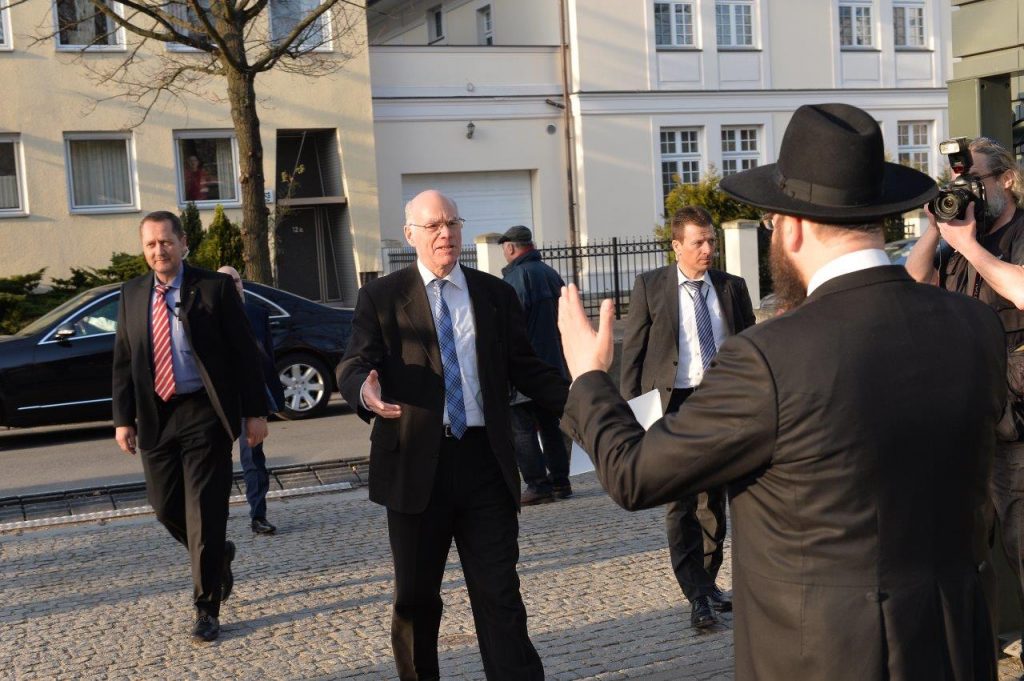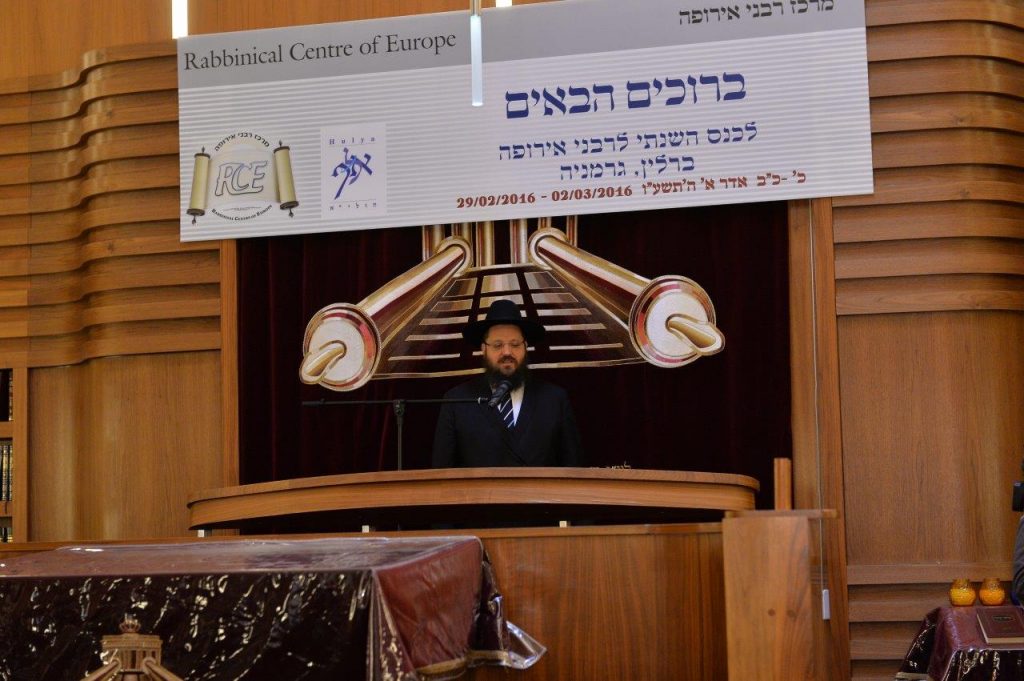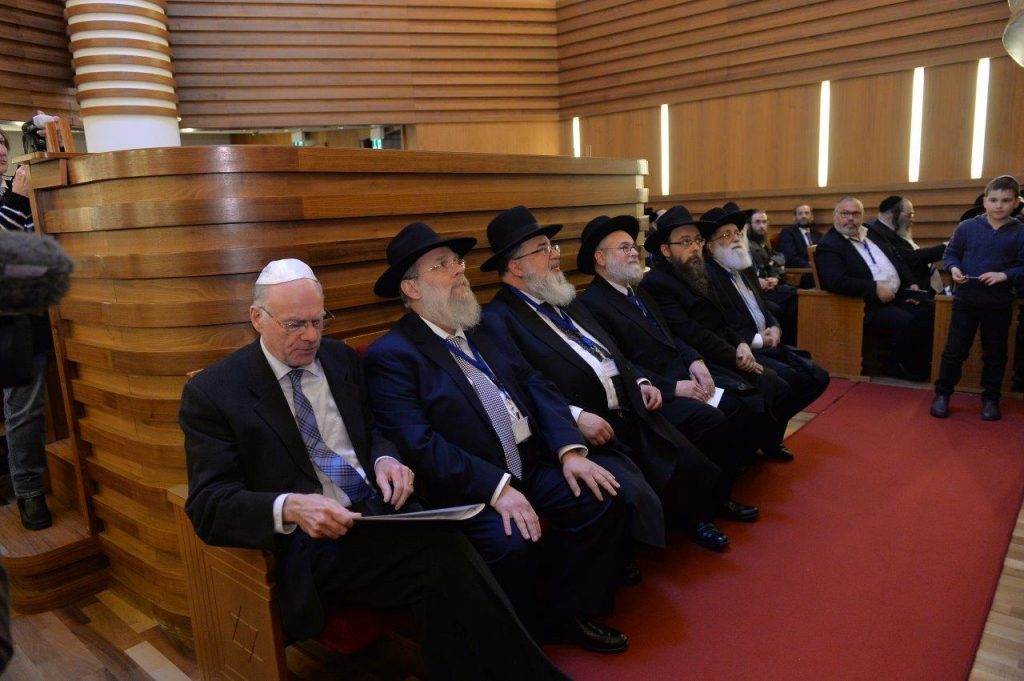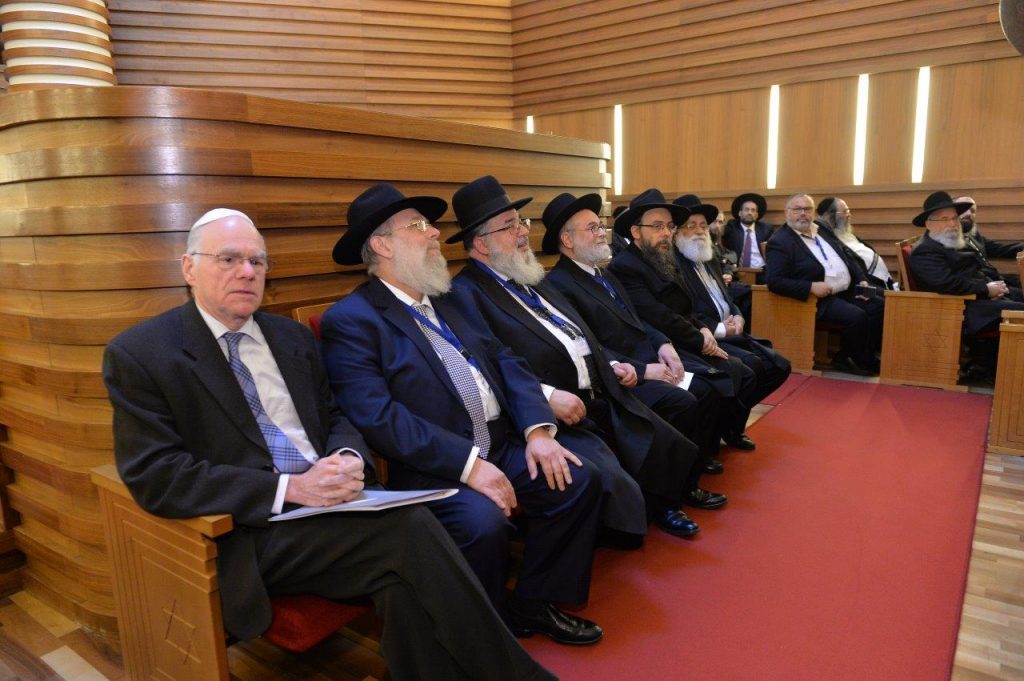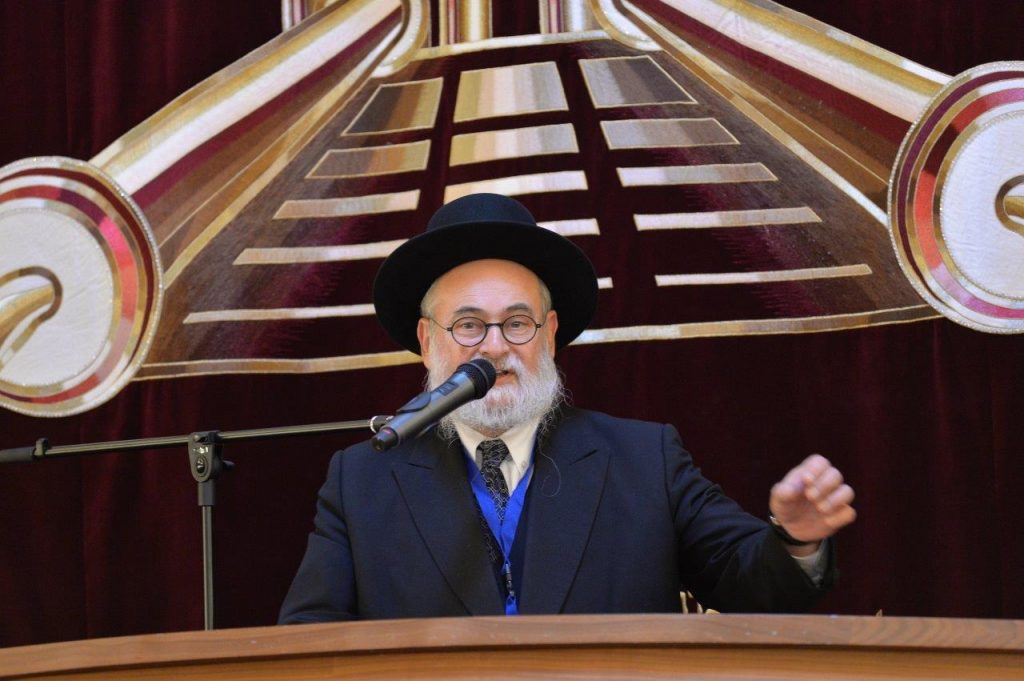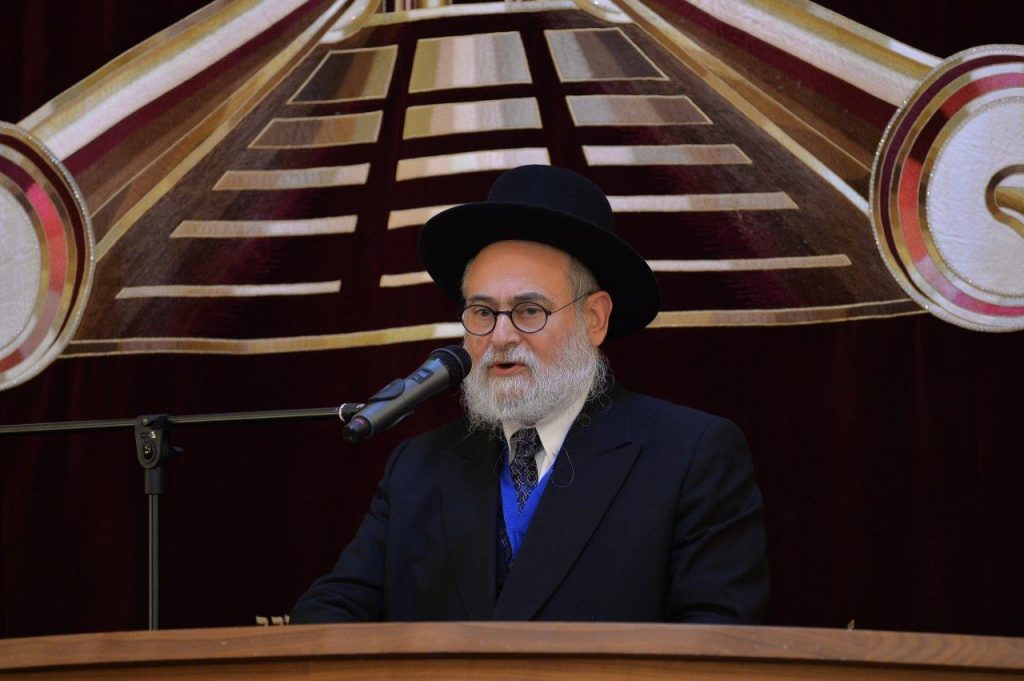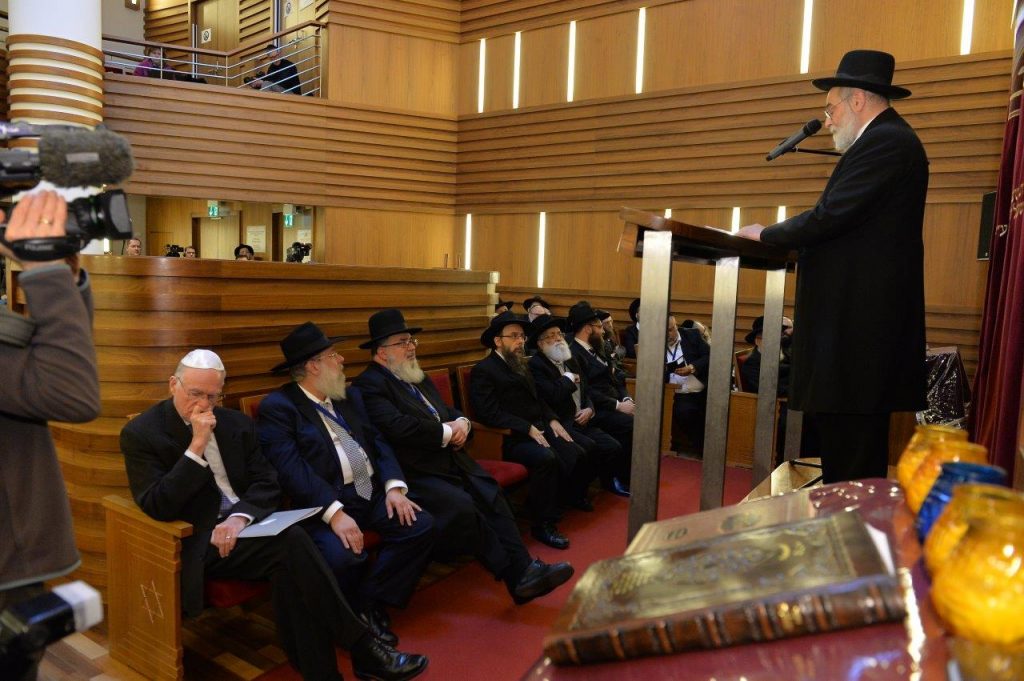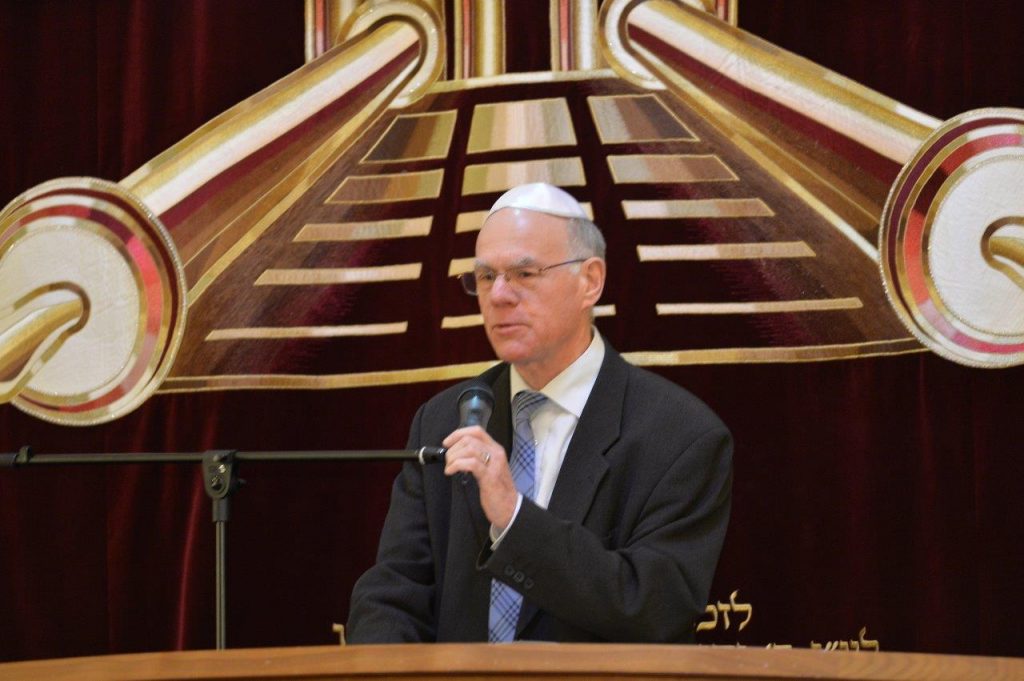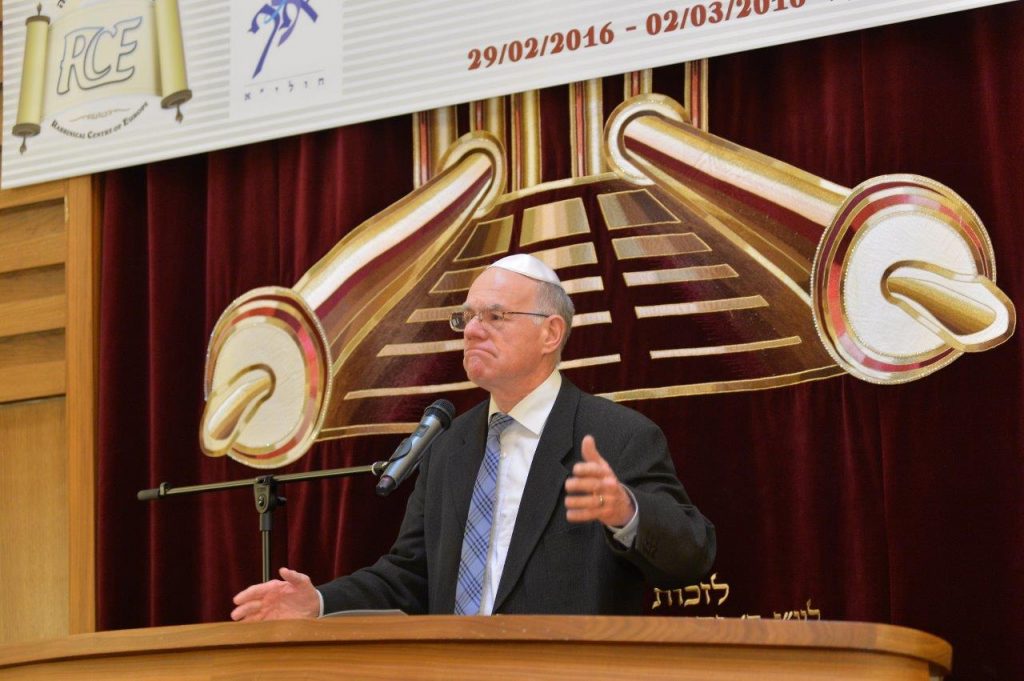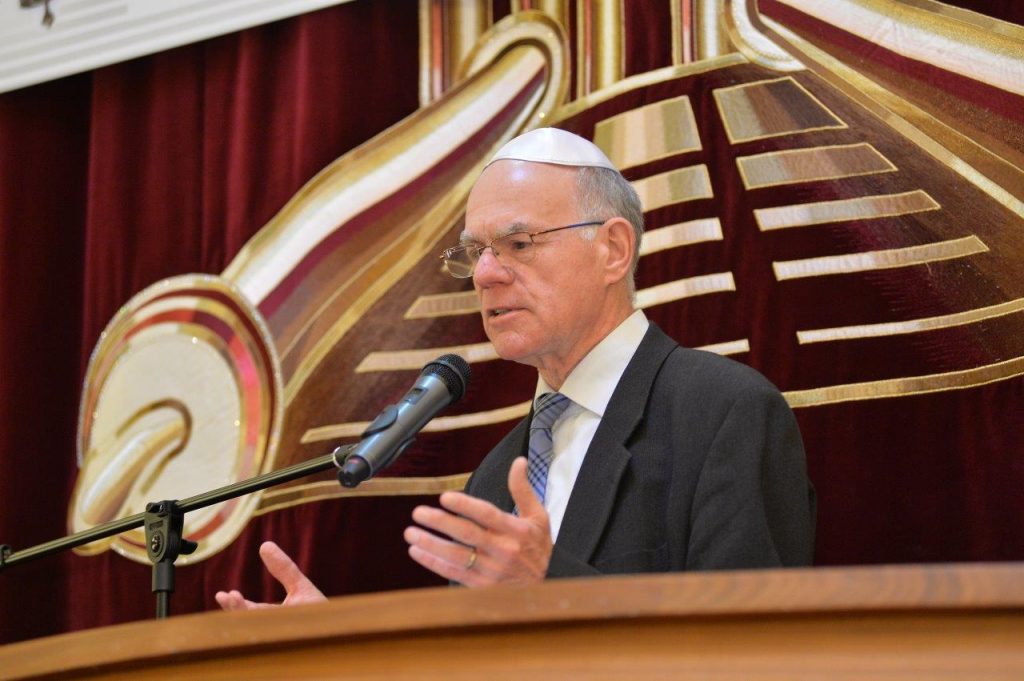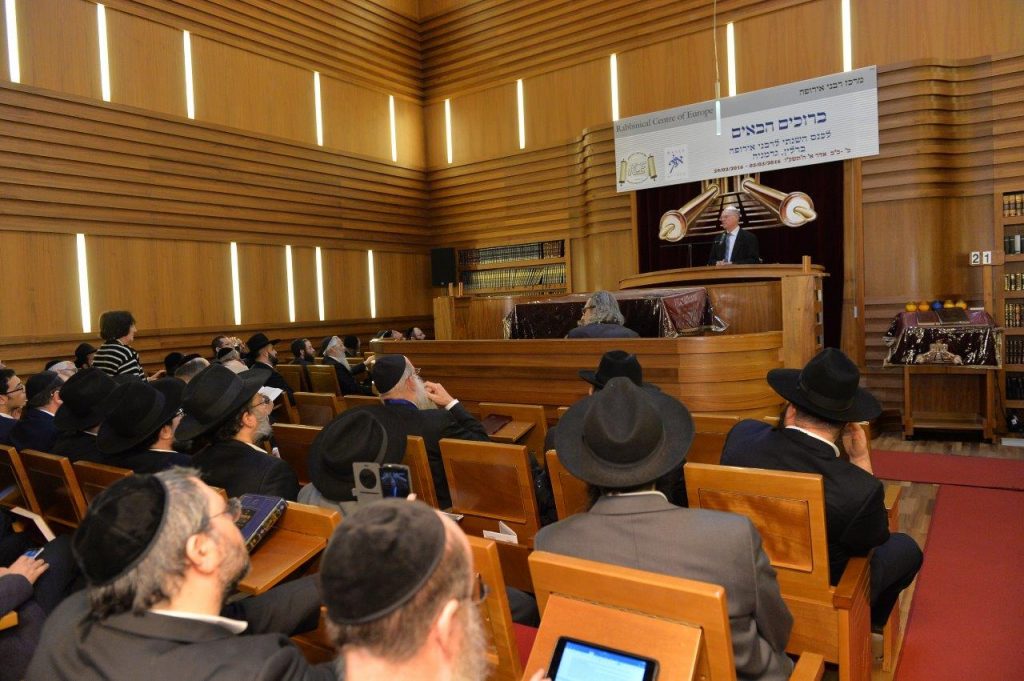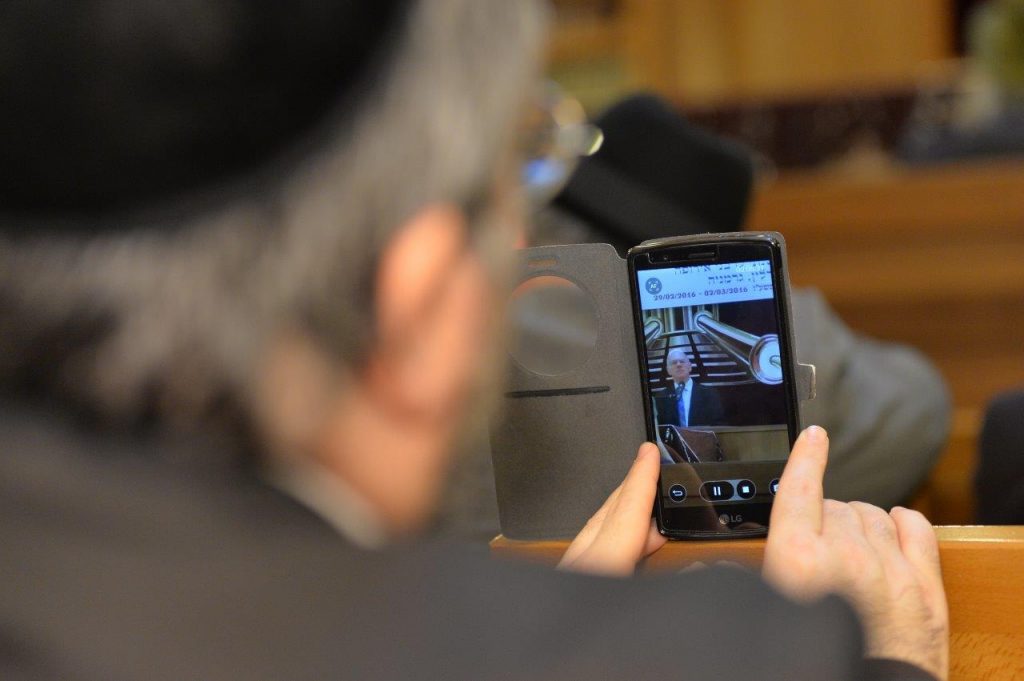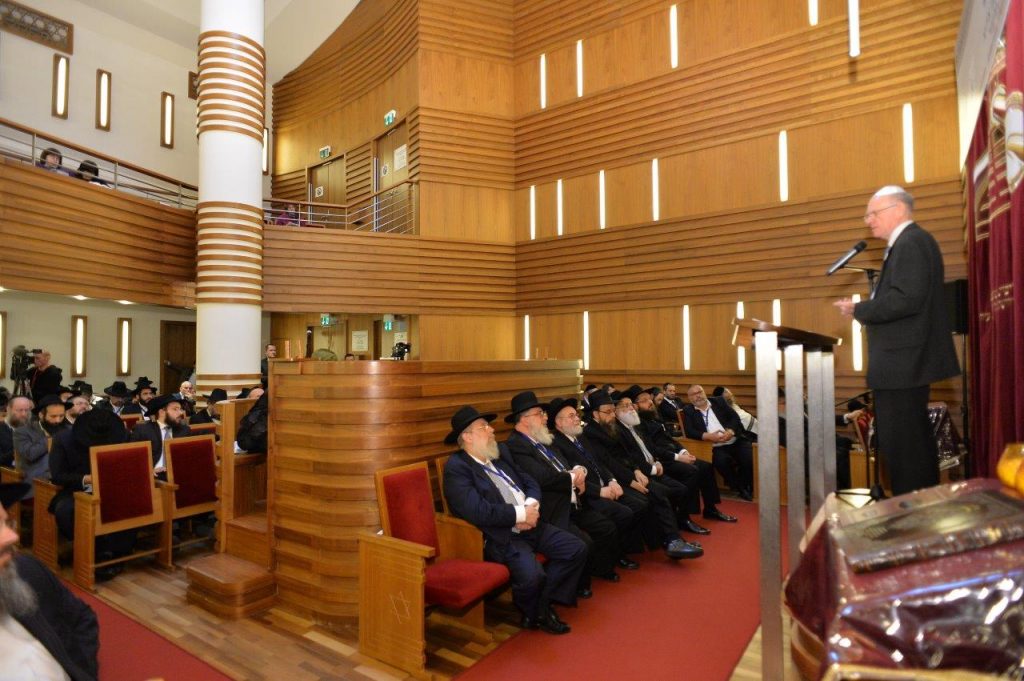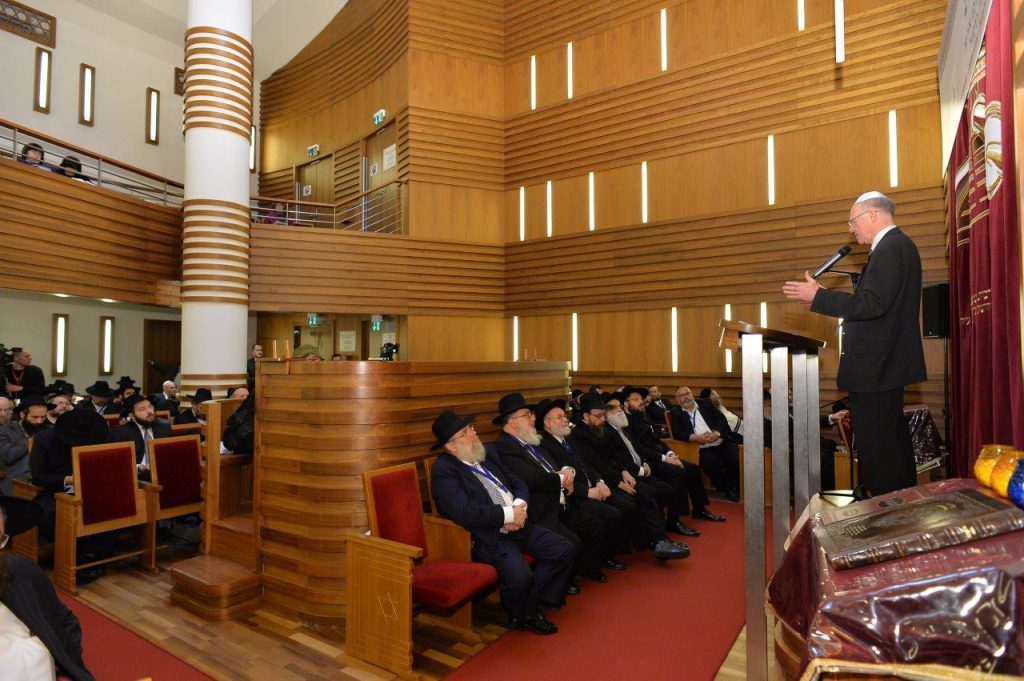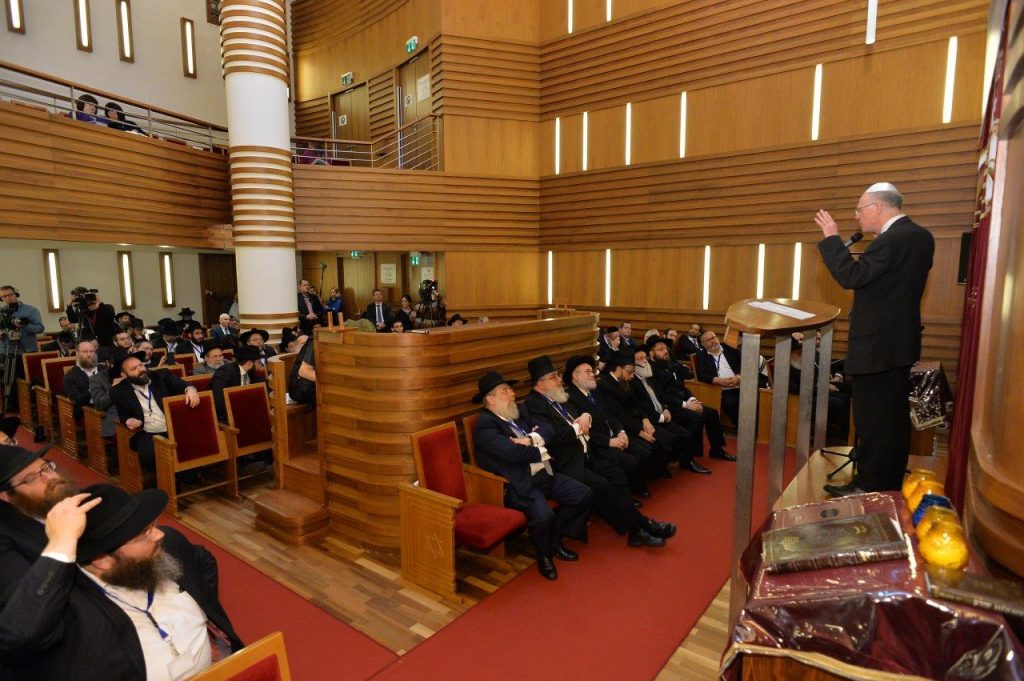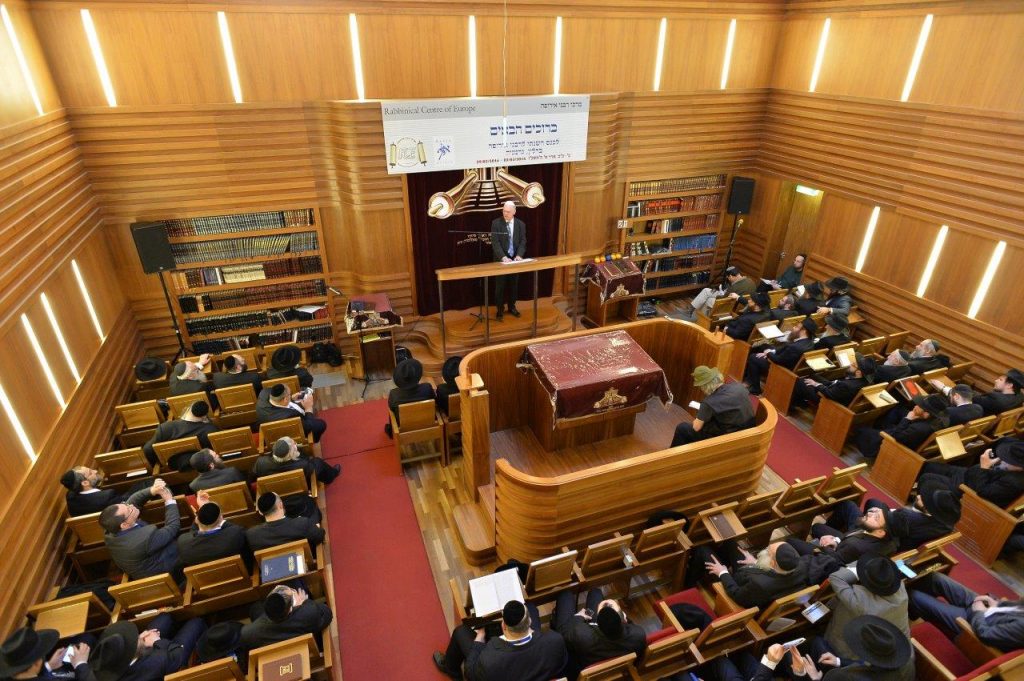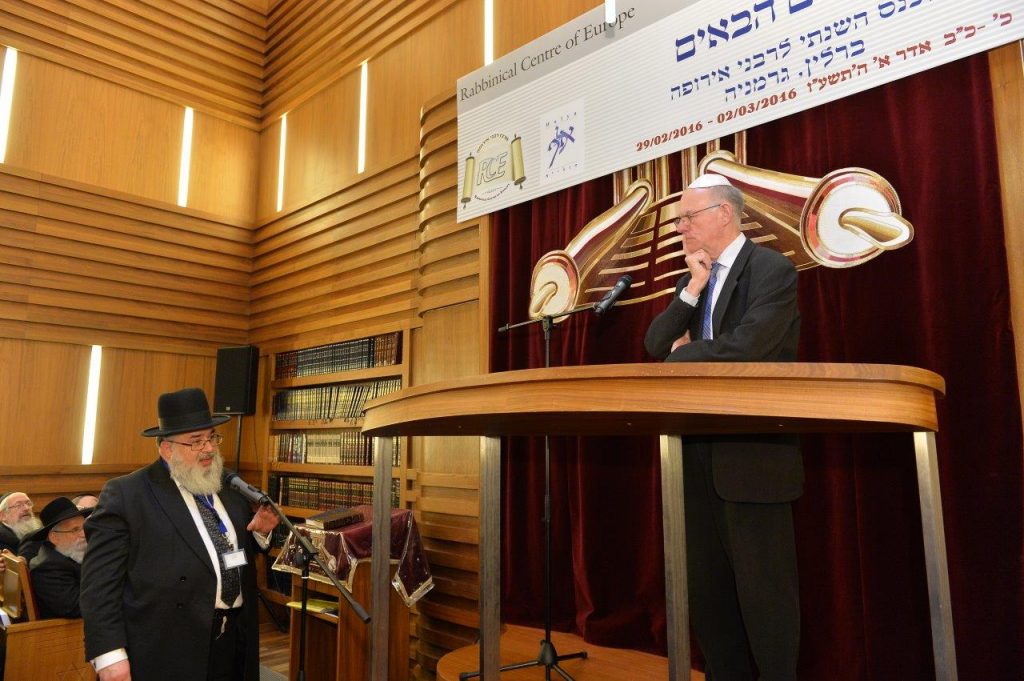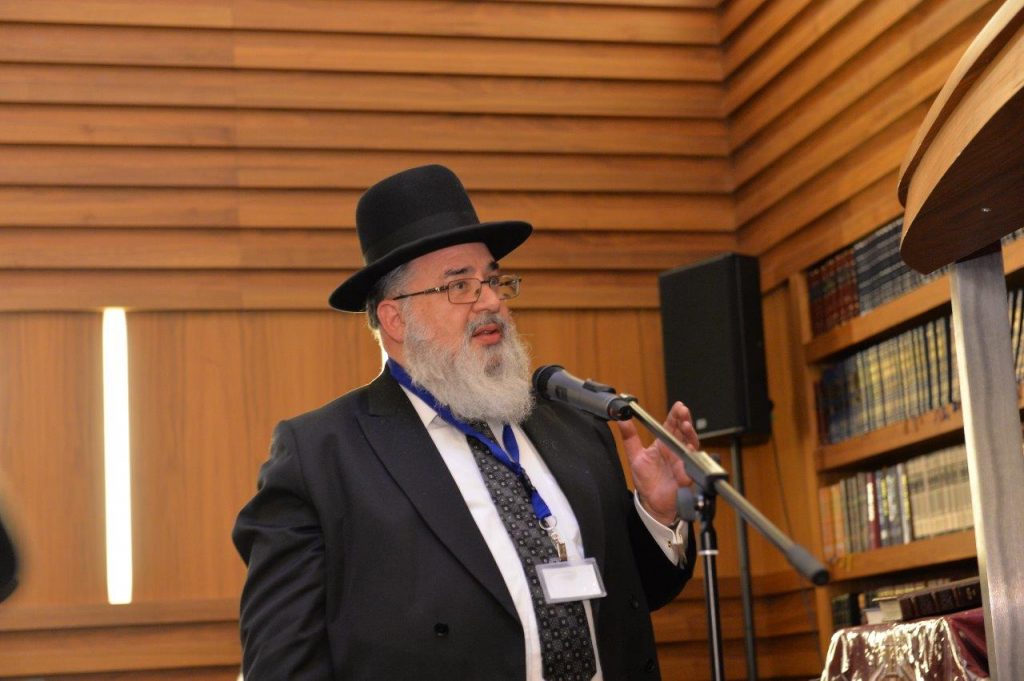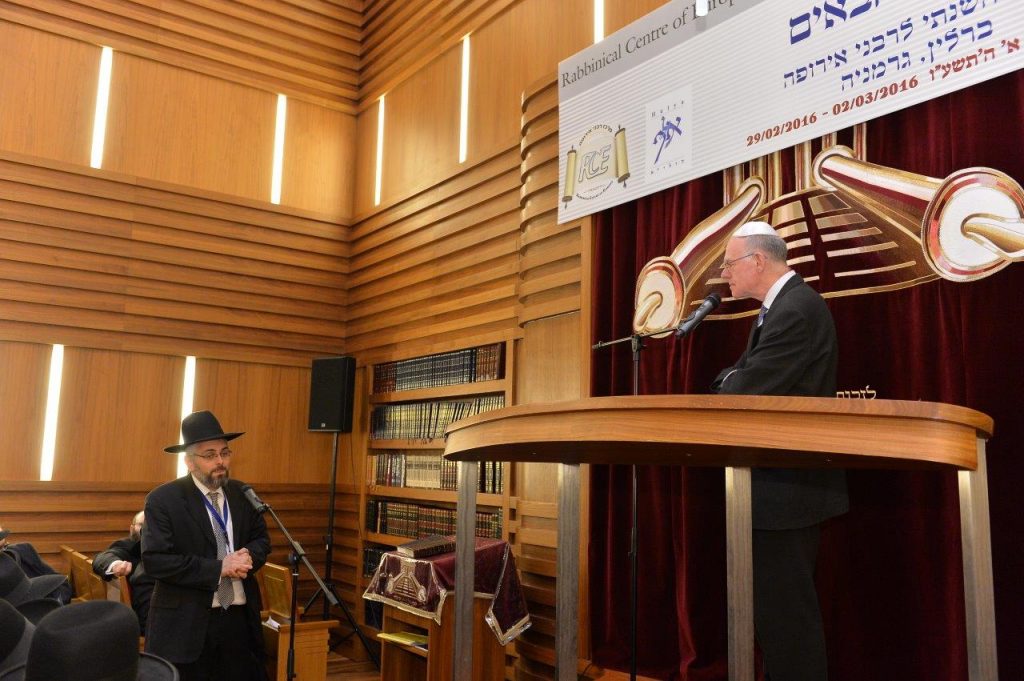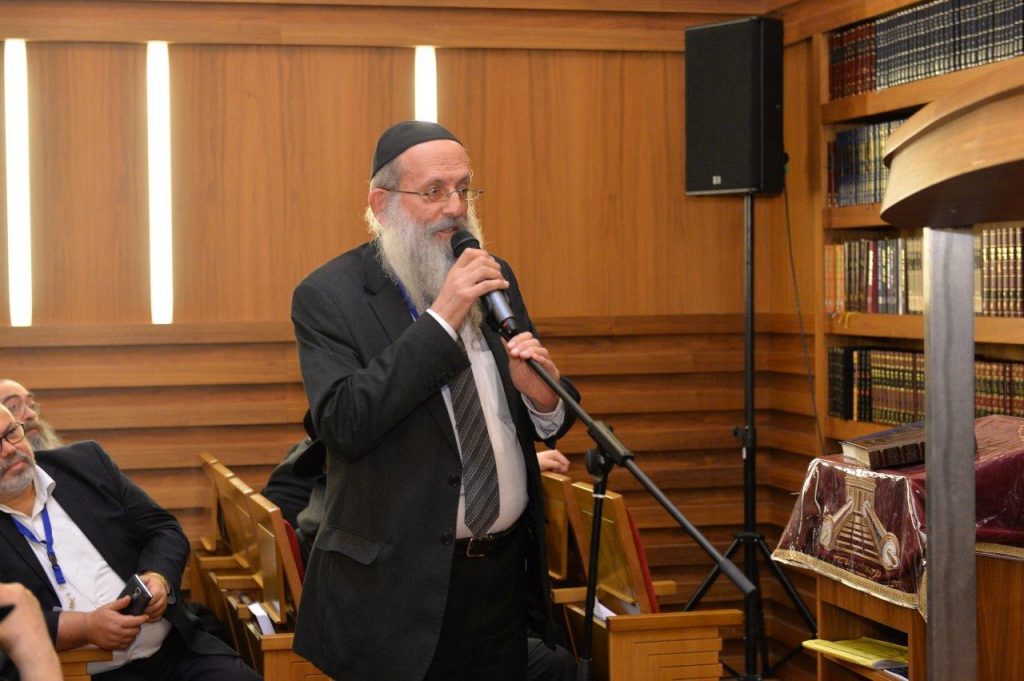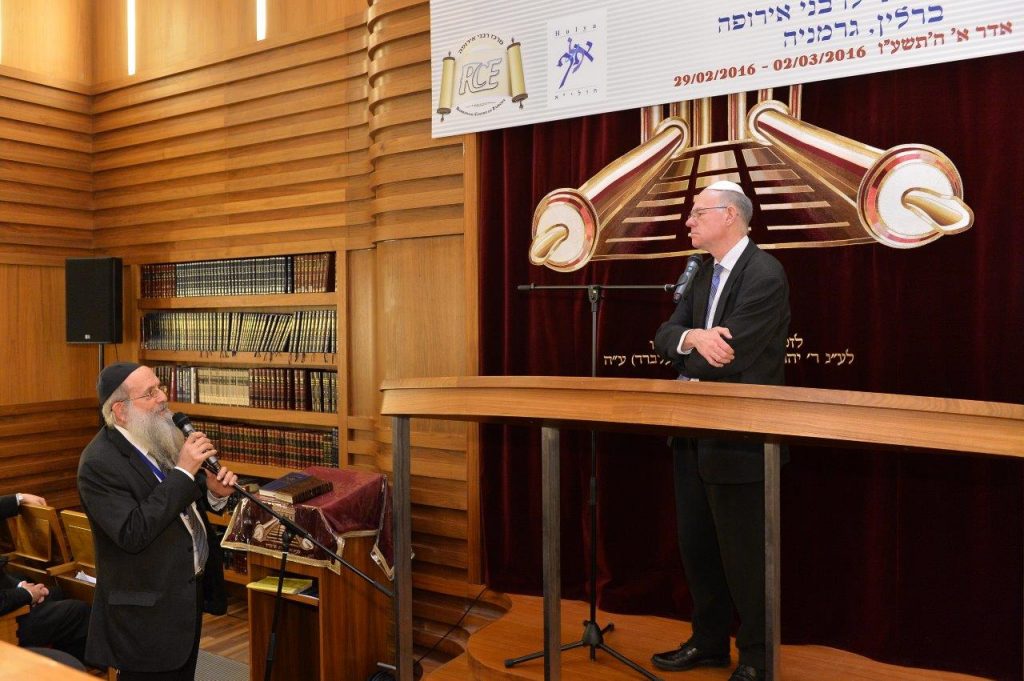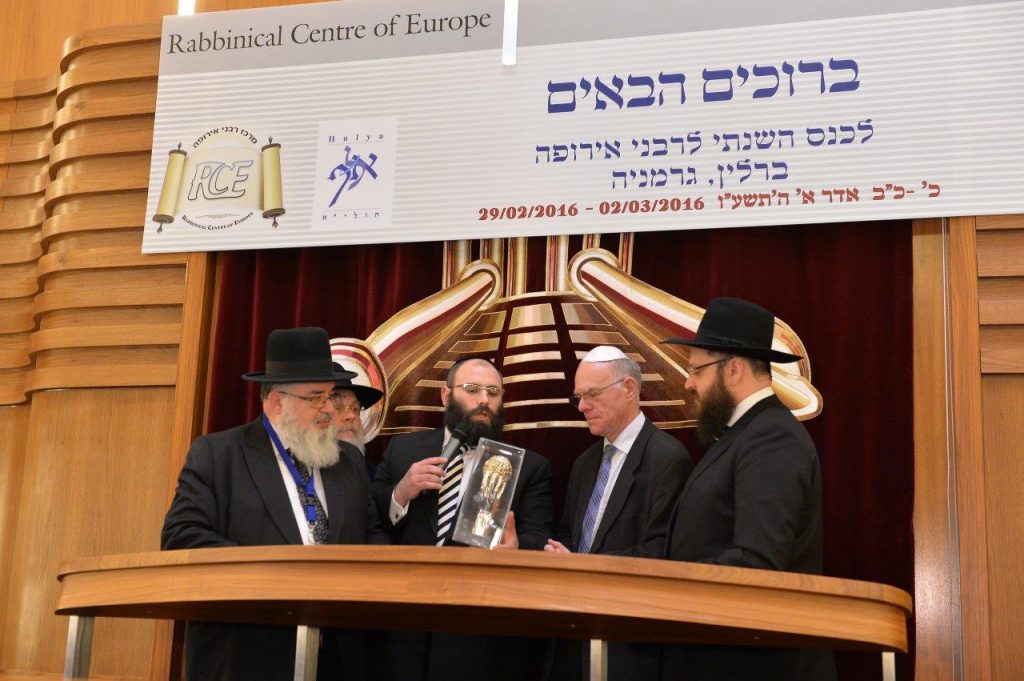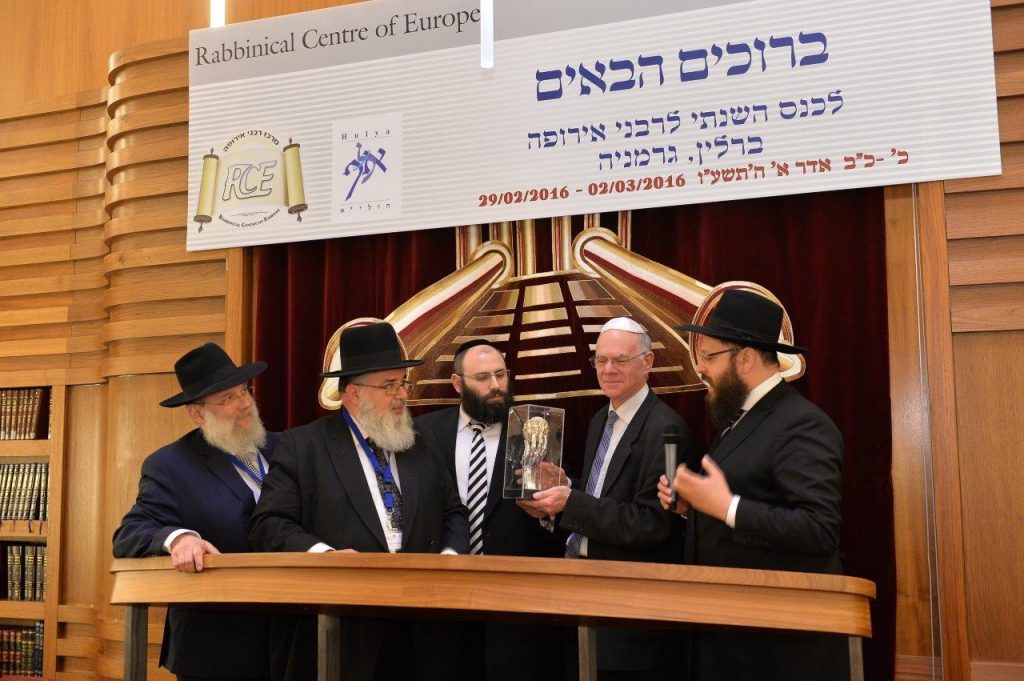A First: President of the Bundestag Addresses the RCE Conference

“Only 200 Jews moved away from Germany over the past ten years. Although the media reported that 6,000 Jews left, that number refers to Jews who passed away during that period,” said Dr. Norbert Lammert, president of Germany’s Bundestag, who ranks second in Germany’s political leadership. Dr. Lammert came on Tuesday to the annual conference of the Rabbinical Centre of Europe, held in Berlin, where he addressed 120 rabbis from every country in Europe.
Dr. Lammert was invited by Rabbi Yehuda Teichtal, Rav of the Berlin Jewish community, to speak to the conference delegates, and he agreed to a question-and-answer session without knowing in advance what questions the rabbis would ask him. Dr. Lammert spend a full hour – quite a long time, considering his packed schedule – responding to questions and explaining both German government policy and his personal views.
Rabbi Yehuda Teichtal welcomed Dr. Lammert and expressed his deep appreciation for the Bundestag president’s policies in general and as they affect Jewish interests in particular. He described his close connection with Dr. Lammert and with his staff, all of whom are most attentive to every request of the Jewish community.
In response to a question about anti-Semitism in Europe, Dr. Lammert said that a major meeting on that issue was to be held two weeks after the RCE conference, with the participation of 60 representatives from all European countries. “European leaders are extremely distressed over this issue, and they intend to come up with a solution,” he said, adding that “there are those who compare anti-Semitic acts to the Holocaust. This is very disturbing to me; there is no question that these occurrences should never take place, but one cannot compare the two. The horrendous atrocities of the Holocaust were perpetrated by a country carrying out its policies. In contrast, anti-Semitic acts are perpetrated by individuals, and no country condones them.
In response to a question about the European leaders’ criticism of Israel, and their interest in labeling products from the West Bank, Dr. Lammert said, “Criticism is not anti-Semitism. We disagree with the government of Israel on a number of its policies, and we act in accordance with our views; at the same time, we maintain open dialogue with Israel’s political leadership.”
When Dr. Lammert finished speaking, RCE director Rabbi Menachem Margolin warmly acknowledged the Bundestag president’s strong policies: “With policies such as yours, we feel secure and confident that there will never be another Holocaust, chas vechalilah. The fact that the Rabbinical Centre of Europe chose Berlin as the venue for its annual conference clearly demonstrates how much we value all that you do.”
In reference to the Bundestag president’s comments on anti-Semitism, Rabbi Margolin said, “The German government’s attitude toward Jews is exemplary. How wonderful it would be if every European country would adopt similar policies. Nevertheless, regarding the comment that there is a difference between the Holocaust, which was carried out by a country, and anti-Semitic acts, which are carried out by individuals, I would like to mention that it is the citizens who vote the government into power. If 30 percent of German citizens today have anti-Semitic leanings, it is certainly conceivable that in another 10 or 15 years they will elect an anti-Semitic government; that is a real danger.”
On behalf of the RCE, Rabbi Margolin presented Dr. Lammert with a very special gift: a silver hand holding in its palm a globe with Jerusalem at its center.
Rabbi Teichtal then offered closing remarks, thanking and blessing the president of the Bundestag.

